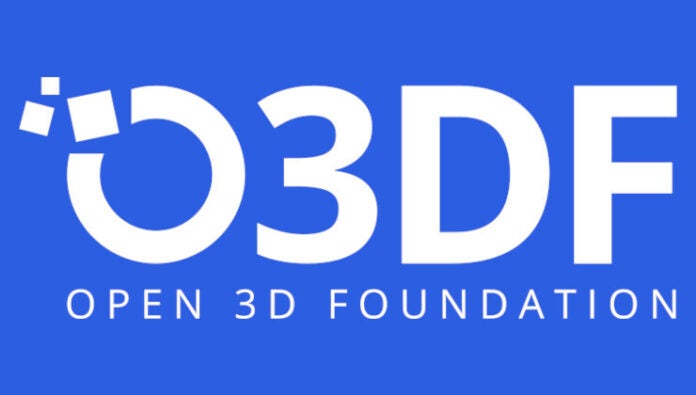Prometeo Platform S.L. is open sourcing ‘Pyrrha’ to monitor and act on firefighters’ health and safety as they battle blazes, with support from Samsung
SAN FRANCISCO — The Linux Foundation, the nonprofit organization enabling mass innovation through open source, today announced it will host Pyrrha, created and contributed by Prometeo Platform S.L., in collaboration with IBM to help accelerate the development and deployment of firefighter safety technology around the world. In 2019, Prometeo was named the winner of the Call for Code Global Challenge and since then their technology has been further developed with updated hardware and enhanced software through work with the IBM volunteer Service Corps and leading ecosystem partners.
Climate change has created more dangerous conditions for firefighters by increasing the risk and extent of wildfires around the world. From Australia’s 2020 brushfires, to record-breaking wildfires in Spain and the Western United States, fires in recent years have increased in number, severity, and destruction, while posing greater immediate and long-term health risks to firefighters who battle these blazes. According to Cal Fire, California is already experiencing a 26% increase in 2021 wildfire activity and a 58% increase in acres burned compared to 2020.
Through the Pyrrha open source project, Prometeo, the Linux Foundation, and IBM aim to accelerate innovation around firefighter health monitoring and safety. By partnering with leading companies from the Call for Code ecosystem like Samsung, the goal is to customize and scale the solution around the world in an effort to help save lives.
“Samsung and IBM have collaborated for many years to create industry leading technologies that solve challenging societal and business problems. Now we’re excited to work together to advance tech for good and help combat the effects of climate change,” said Executive Vice President of Samsung B2B Mobile KC Choi. “As a huge proponent of open source technology, we see Call for Code as a unique opportunity to deploy real world solutions based on open source technologies. We’re excited to be able to equip award-winning teams like Prometeo with resources to strengthen their solution as it is actively tested, deployed, and now made available in open source. We also look forward to increasing our own participation in Call for Code.”
The Prometeo solution was created by a nurse, a firefighter, and developers as a system that uses artificial intelligence and the internet of things to guard the safety of firefighters. Over the past two years through collaboration with Call for Code ecosystem partners, Prometeo has improved its technology across offline usage, through integration with mobile phones and watches to provided two-way alerts, and in capturing the averages of toxin exposure over time. Through field tests in Spain in early 2020 and 2021, the technology has incorporated firefighter feedback and amassed anonymized technical data to improve the solution end-to-end.
“Pyrrha is another example of the power of open source to accelerate technology innovation that can save lives,” said Mike Dolan, senior vice president and GM of Projects at the Linux Foundation. “We are happy to support and host the development of Pyrrha and the community that is building and using it.”
“On behalf of the Prometeo team, we want to extend our deepest thanks to our many partners who have contributed to improve this solution and help protect firefighters,” said Salome Valero, co-founder of Prometeo. “We set out to create technology that would equip firefighters with personalized monitoring of their exposure to toxic substances. Through the contributions of our partners and the open source community, that dream is becoming a reality through the Pyrrha open source project.”
In addition to the Linux Foundation, IBM and Samsung, Prometeo’s ecosystem partners in the Pyrrha community include a variety of leading tech companies and institutions:
Arrow Electronics has helped improve Prometeo’s IoT devices.GRAF/Bombers de la Generalitat de Catalunya facilitated multiple rounds of field testing of testing with Prometeo’s technology during controlled burns in Spain. The Pau Costa Foundation is helping connect Prometeo with a global community of firefighters, and exploring opportunities for further field testing.Peli has contributed their expertise in creating firefighter gear to help enhance Prometeo’s hardware.Universitat Autónoma de Barcelona has contributed lab access and technical expertise to help calibrate devices.
IBM and The Linux Foundation have a rich history of deploying projects that help drive progress in society through innovation. The winner of the 2018 Call for Code Global Challenge, Project OWL, contributed its IoT device firmware in March 2020 as the ClusterDuck Protocol. Since then, more than a dozen Call for Code deployment projects have been open sourced for communities that need them most, with solutions ranging from disaster-response, to mitigating climate change, and promoting racial justice.
The Pyrrha project community encourages new users to contribute and to deploy the software in new environments around the world. Priorities for short term updates include adapting the hardware for usage in new locations, improving the analysis of toxin exposure over time, and further improving the mobile and smartphone capabilities. For more information, please visit: https://pyrrha-platform.org.
The 2021 Call for Code Global Challenge invites the world’s software developers and innovators to combat climate change with open source-powered technology. Call for Code’s diverse and like-minded global ecosystem of experts, companies, foundations, universities, and celebrities continues to expand. It includes UN World Food Programme Innovation Accelerator experts, Arrow Electronics, Black Girls Code, Caribbean Girls Hack, charity: water, Clinton Foundation, Clinton Global Initiative University, Heifer International, Ingram Micro, Intuit, Kode With Klossy, NearForm, United Nations Office for Disaster Risk Reduction, United Way, and World Institute on Disability.
For more information and to begin contributing, please visit: https://developer.ibm.com/callforcode/solutions/projects/get-started/ & https://github.com/Pyrrha-Platform
About Call for Code
Developers have revolutionized the way people live and interact with virtually everyone and everything. Where most people see challenges, developers see possibilities. That’s why David Clark, the CEO of David Clark Cause, created Call for Code in 2018, and launched it alongside Founding Partner IBM and Charitable Partner UN Human Rights. Since then, Call for Code has scaled to include an annual University Challenge in addition to regional prizes and the creation of Call for Code for Racial Justice. This multi-year global initiative is a rallying cry to developers to use their mastery of the latest technologies to drive positive and long-lasting change across the world through code. Call for Code Global Challenge winning solutions are further developed, incubated, and deployed as sustainable open source projects to ensure they can drive positive change. To learn more about past winners and their progress, visit IBM Developer.
About The Linux Foundation
Founded in 2000, The Linux Foundation is supported by more than 1,000 members and is the world’s leading home for collaboration on open source software, open standards, open data, and open hardware. The Linux Foundation’s projects are critical to the world’s infrastructure including Linux, Kubernetes, Node.js, and more. The Linux Foundation’s methodology focuses on leveraging best practices and addressing the needs of contributors, users and solution providers to create sustainable models for open collaboration. For more information, please visit us at linuxfoundation.org.
###
The Linux Foundation has registered trademarks and uses trademarks. For a list of trademarks of The Linux Foundation, please see our trademark usage page: https://www.linuxfoundation.org/trademark-usage. Linux is a registered trademark of Linus Torvalds.
Media Contact
Jennifer Cloer
for the Linux Foundation
503-867-2304
jennifer@storychangesculture.com
The post The Linux Foundation, Prometeo, IBM, and Partners Announce New Firefighter Safety Open Source Project appeared first on Linux Foundation.


